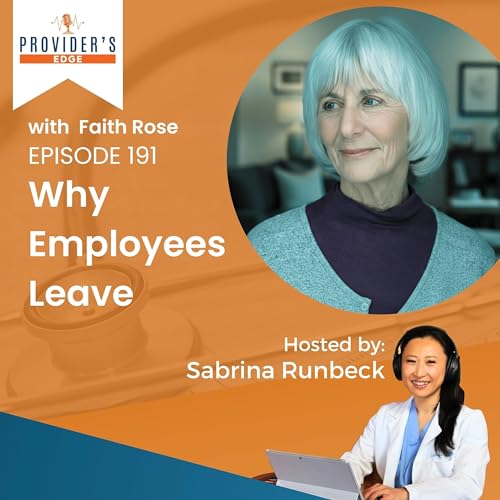You don’t lose great employees because of salary alone.
You lose them when the system stops supporting real life.
In this episode, I sat down with Faith Rose, a healthcare and benefits strategist with 20+ years of experience helping organizations improve employee wellness and financial stability without new spending or insurance disruption.
We discussed how founders and operators unknowingly leak cash through payroll taxes, why healthcare benefits are usually treated in silos, and how preventative care can actually become a retention and resilience strategy.
This conversation is for leaders who are scaling fast and don’t want their people, culture, or margins to crack under pressure.
What You’ll Learn in This Episode- Why financial resilience isn’t about cutting costs—it’s about reallocating what’s already leaving your system
- How payroll taxes can be redirected into preventative wellness benefits with zero net cost
- The hidden reason many employee benefits go unused (and how to fix it)
- Why access without affordability isn’t real healthcare
- How early-stage companies can compete for talent before they hit 50 or 100 employees
- The ripple effect that preventative care has on productivity, culture, and retention
Featured Guest
Faith Rose
Healthcare & Benefits Strategist
Helping organizations implement Mission Aligned Benefits—a compliant, payroll-based solution that improves employee and family wellness while strengthening company cash flow.
Connect with Faith on https://www.linkedin.com/in/elisha-faith-rose/
Company: Envision Success envisionsuccessllc.com
Ready to Scale Without Losing Trust—or Time?
If you're building momentum but still not closing the contracts, capital, or margins you know you're capable of, here are 3 ways we can help today:
Get a 360° Strategy from a Board That Sees What You Can’t
Still piecing advice together from part-time advisors who barely have time to talk?
Our Boardroom program gives you direct access to a 12-seat integrated advisory board—designed to find the blind spots in your funding, contracts, and margin strategy.
This isn’t another Slack chat or once-a-month call. It’s a full diagnostic and action plan you can’t afford to miss.
👉 PulsePointPath.com/Apply
Turn Your Pitch into a Funding Magnet
Your pitch isn’t a presentation—it’s a conversion tool. Send us your deck and get a persuasive rewrite that speaks to what investors actually fund.
👉 PitchToYes.com
Get Seen by the Right Investors—Not Just Any Investors
Third-party validation is the trust shortcut most founders overlook. Apply now for the HealthTech Impact Awards—six categories, one chance to be seen by capital-ready backers.
🗓️ Nominations close March 1, 2026
👉 HealthTechImpactAward.com
 2026/02/2532 分
2026/02/2532 分 38 分
38 分 40 分
40 分 28 分
28 分 34 分
34 分 32 分
32 分 25 分
25 分 32 分
32 分
